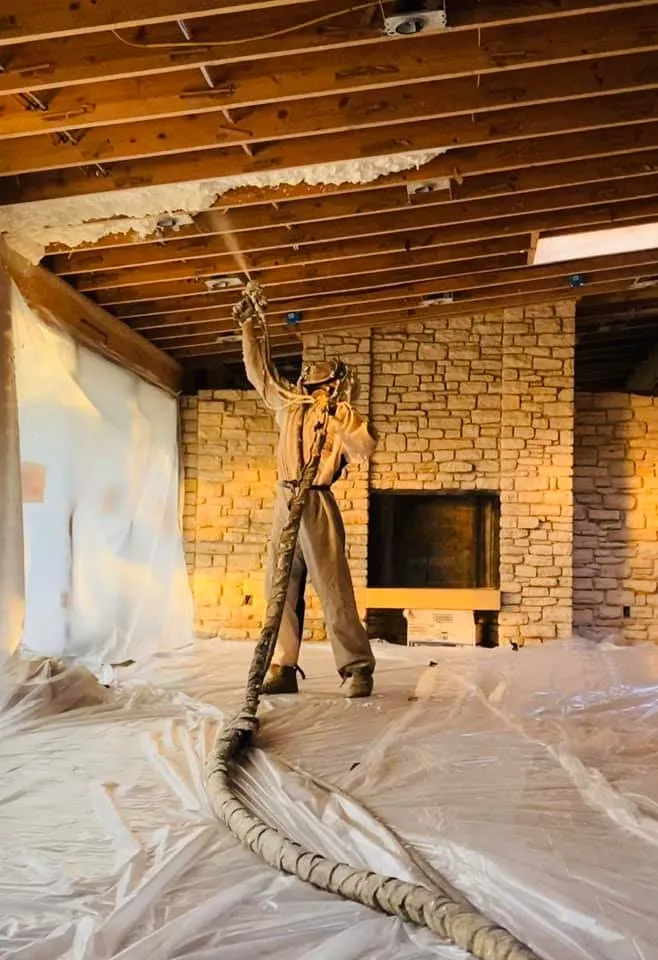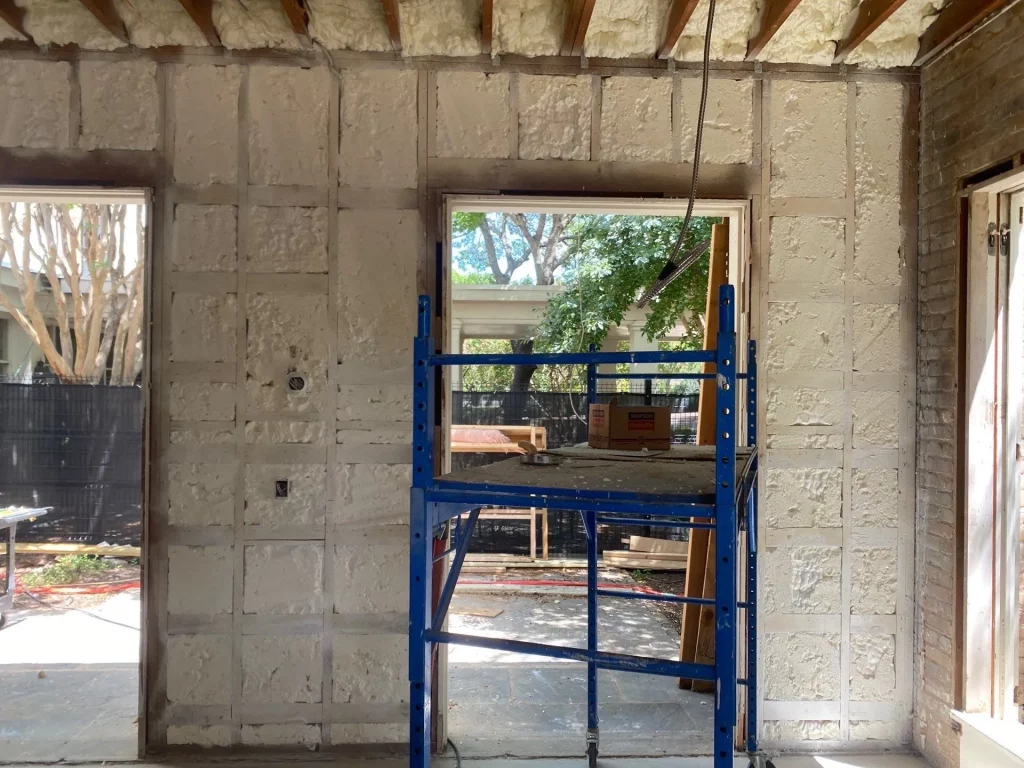Rock Wool insulation was first developed in 1897 by Charles Hall, an American chemical engineer. He converted molten limestone into fibers that is used today for insulation. This insulation is also known as mineral wool or stone wool. It is a byproduct of the steel manufacturing process and is made of molten steel slag.

Photo: Roxul for interior wall sound barrier with air tight foam for exterior walls.
Where is rock wool insulation used around Austin TX?
The most common applications Stellrr is hired to use rock wool insulation is:
- where fire safe insulation is required by the architect
- for sound deadening on interior walls
Why use rock wool (Roxul) insulation?
Fire Barrier with rock wool insulation batts:
The mineral wool insulation is made from stone that is naturally fire resistant. So it can resist fire better than other insulation materials. Rock wool can be in 1,832 degree temperatures without burning. It basically takes a volcano to melt rock wool. So it is common to use rock wool around elevators, stairwells, or steel support beams in commercial buildings.
- A 2×4 wall cavity – rock wool insulation r-value is R15
- A 2×6 wall cavity – rock wool insulation r-value is R23
Sound Barrier with rock wool insulation:
Rock wool insulation is in the same Sound Transmission Class (STC) as Open Cell Spray Foam. So wool is often used where spray foam cannot be used. Spray foam is the superior of the two products for soundproofing because wool batts do not seal the cracks and penetrations that leak sound in walls.
Check out the article on comparing sound attenuation insulation types here.
Can rock wool be put in existing walls?
It depends. If the wall covering or sheetrock is removed, then yes, the wall cavity can be filled. However, if the wall currently has sheetrock up, then rock wool insulation batts cannot be placed into the wall cavity.
Currently Stellrr installs ProWool which is a blown mineral wool that is installed via drill-n-fill techniques. There is hardly a comparison between rock wool insulation vs fiberglass. Rockwool is superior for sound, fire, and r-value.
Here is what to do next:
Book your Home Performance Diagnostic Consult. OR Download the Ultimate Insulation Buyer’s Guide, OR call (512) 710-2839.





